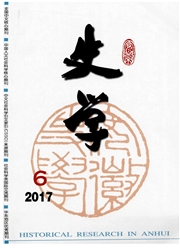

 中文摘要:
中文摘要:
在古代社会,国家法对少数民族偏远地区的影响常因地理环境的制约而相对薄弱.地方秩序的维护多依赖于地方习惯法.近代以后,国家力量逐渐加强了其对偏远地区的影响力,国家法也逐步变成民众处理社会问题的另一种途径.但在国家法进入地方法控制区的时候,就不免会出现适应问题,特别是当国家法与地方法存在分歧的内容时,民众如何抉择值得关注.民国贵州天柱县的一起侗族离婚案,充分地展现了国家法和习惯法扦格的情况.由于当地侗族习惯法占有优势,使得国家法的解决途径最终未能成功.本文拟以此案为例,展现民国时代社会变迁的一个缩影.
 英文摘要:
英文摘要:
In ancient society, the impact of national law on ethnic minorities in remote areas often due to constraints of ge-ographical environment was relatively weak. The maintenance of local order more dependent on local customary law.After enterring the modern era, the national power relying on modern civilization gradually strengthened its influence in remote areas, the national lawhas gradually become another way people deal with social issues. But when the national law entered into the area controlled by the customary lw,it inevitably faced serious adaptation problems , especially when the two laws had content differences, how people choose to became an important manifestation of the changing times. Acase of Dong divorce in Tianzhu, Guizhou during the Republic era, fully demonstrated the contradiction of national law and customary law. At last, the local customary law' advantage led to the ultimate failure of the national law solutions.
 同期刊论文项目
同期刊论文项目
 同项目期刊论文
同项目期刊论文
 期刊信息
期刊信息
